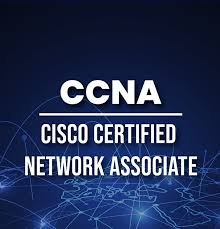No Widget Added
Please add some widget in Offcanvs Sidebar
Shopping cart
- +91-8825066452
- 2nd Floor, Matto Complex Red Cross Road Sgr
- info@kashsoftcomputers.com

The CCNA (Cisco Certified Network Associate) certification syllabus covers a wide range of fundamental networking concepts. As of the current Cisco CCNA 200-301 exam (the latest version launched in February 2020), the syllabus includes the following major topics:
IP addressing (IPv4/IPv6)
MAC and IP addressing
Subnetting and VLSM
Common networking components (routers, switches, firewalls, etc.)
TCP/IP and OSI models
Cable types and physical interfaces
IPv4/IPv6 configuration and troubleshooting
Wireless principles (SSID, encryption, frequency bands)
VLANs and trunking (802.1Q)
Inter-VLAN routing
Spanning Tree Protocol (STP)
EtherChannel (LACP)
Wireless LAN (WLAN) components and configuration
Wireless architecture (controller-based vs. autonomous)
Routing concepts (static and dynamic)
Default routing
OSPFv2 (single-area) configuration and verification
First Hop Redundancy Protocols (FHRPs)
DHCP (v4 and v6)
NAT (static, dynamic, PAT)
NTP
DNS
Syslog and SNMP
Port mirroring and traffic analysis (SPAN)
QoS concepts
Threats and vulnerabilities (phishing, malware, etc.)
Security program elements (user awareness, training)
Access control (AAA, RADIUS, TACACS+)
Security features on devices (SSH, ACLs, port security, DHCP snooping, DAI)
Traditional vs. controller-based networking
REST APIs and JSON
Cisco DNA Center
Configuration management tools (Ansible, Puppet, Chef)
Network programmability basics